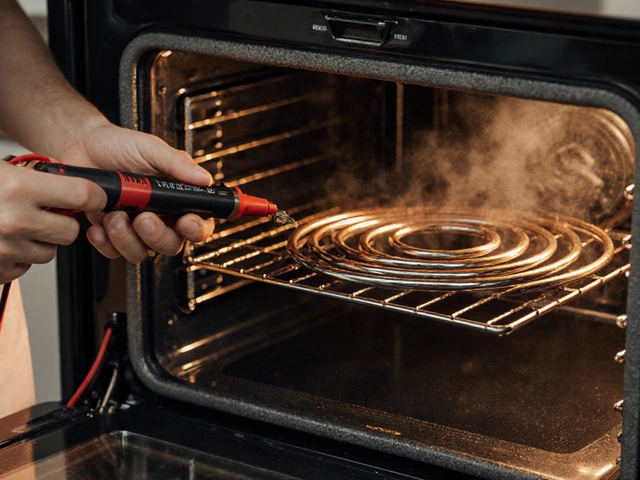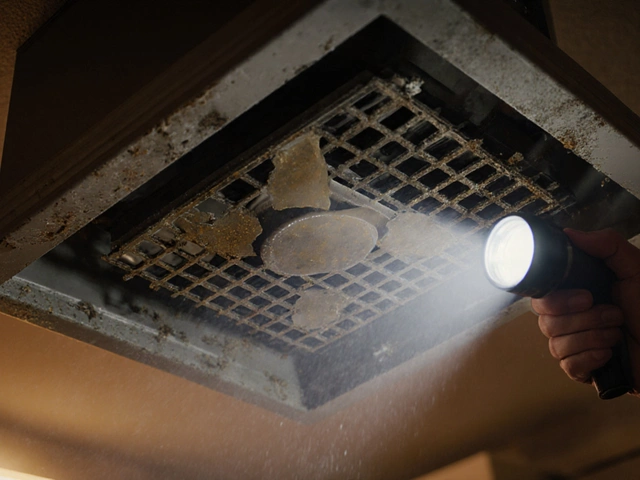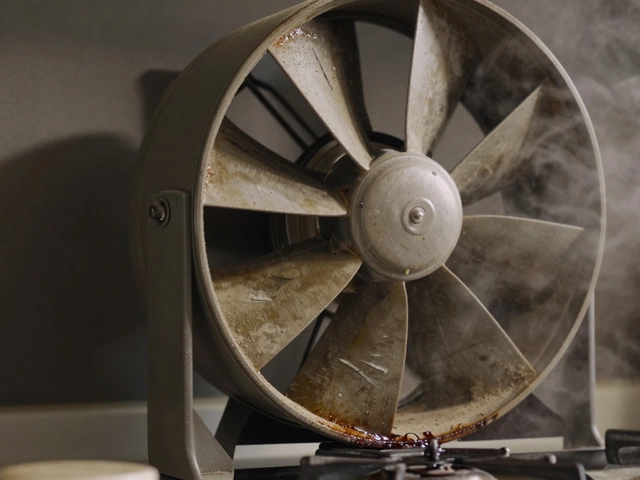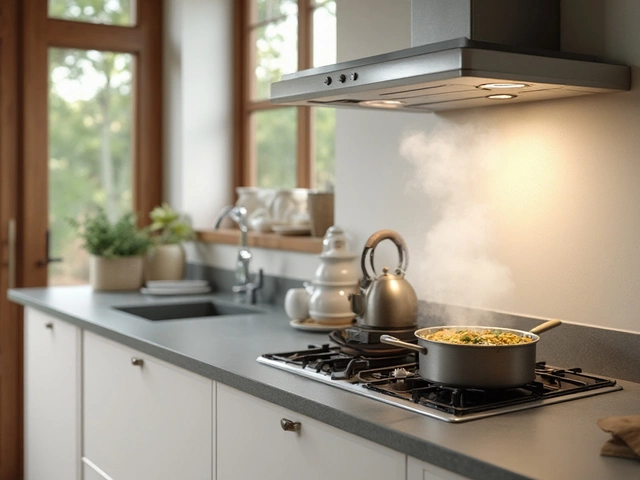It’s dinner time and I’m halfway through making spaghetti—Max is eyeing me, hoping a meatball will hit the floor—when my cooker starts making that worrying ‘whump’ noise. Cue the sinking feeling. But really, how long is a cooker supposed to last? You buy a cooker thinking it’ll see you through years of weeknight meals, rushed pancakes, and maybe a few experiments you’d rather forget. But just like that ancient toaster sulking in the cupboard, nothing lasts forever. Let’s break down what you can expect from your cooker, why some seem to kick on for decades (while others gasp out after a handful of years), and what you can do to stretch out every last meal.
Understanding the Average Lifespan of a Cooker
The first surprising thing: not all cookers have the same expiration date. The average modern cooker clocks in at around 10-15 years of use—but there’s a twist. Gas cookers tend to hang in there longer than electric ones, sometimes reaching 15 years or more, while electrics average closer to 10-13 years. How you use it, clean it, and even how often Max sneaks round the back and chews a cable (true story) can all count for or against it.
Let’s look at a few quick stats for Australia and beyond:
| Cooker Type | Average Lifespan (years) | Common Issues |
|---|---|---|
| Gas | 13-17 | Ignition failure, burner clog, thermostat issues |
| Electric (coil or solid) | 10-13 | Element burnout, faulty wiring, control panel |
| Induction | 10-15 | Sensor faults, electronics malfunction |
| Dual Fuel | 11-15 | Gas/Electric mix failures |
Of course, brands matter—a high-end cooker from Europe might squeeze out a few more years than a budget home-brand model from your big box retailer. Even so, most modern cookers hit that sweet spot around the 12-year mark before signs of trouble start cropping up. The trick is knowing what those signs mean for you as a home chef.
What Kills a Cooker? Common Causes for Failure
Cookers don’t just die of old age. Usually, it’s one of a handful of issues that sends them to appliance heaven. First up, heating elements just don’t last forever. With every meal, those coils, igniters, or induction plates wear down little by little. Once they start taking longer to heat or can’t hold temperature, you’ll notice dinner turning out differently.
Electronic parts are another sore spot. Modern cookers are loaded with digital panels, timers, sensors, and sometimes Bluetooth or WiFi. All of these bits can be finicky. A blown fuse, a failed circuit board, or a stubborn digital display can force you to weigh repair costs against the price of a brand new cooker.
Then there’s good, old-fashioned grime. If you let spills build up or don’t check the seals and gaskets, you can shorten your cooker’s lifespan by years. I know it’s boring, but a quick wipe after sticky spills or a proper clean now and then makes a huge difference. (Max tries to help with his tongue, but I promise it doesn’t count.)
Finally, power surges or poor installation play a sneaky role. If your home regularly trips the breakers or your cooker isn’t connected right from the start, you’ll be racing towards replacement faster than you’d like. A few simple habits can save you major headaches—in the next section, I’ll lay out simple ways to avoid an early breakdown.

How to Make Your Cooker Last Longer
Getting more years out of a cooker isn’t rocket science. It all boils down to three things: cleaning, maintenance, and not ignoring weird noises or smells. Here’s what’s worked for me—and what appliance repair techs actually recommend when you call them out:
- Clean regularly—Wipe up spills when they happen. Grease and food bits that bake onto burners, ovens, or induction plates force the cooker to work harder, wear out, or even start a fire in bad cases.
- Check seals—Oven door seals harden or crack with use. Close the door on a bit of paper and see if you can pull it free easily—if so, the seal may be failing (and you’re losing heat and wasting cash).
- Don’t slam doors or knobs—Treat your cooker’s parts gently. Slamming doors or twisting knobs roughly can knock off alignment, break hinges, or crack panels. It sounds simple, but it’s one of the most common causes for repairs. Treat it like your car, not a stubborn filing cabinet.
- Watch for warning signs—If your oven doesn’t heat evenly, burners spark oddly, or you smell gas or electrical burning, don’t just hope for the best. Get it checked straight away.
- Keep vents and fans clear—Most ovens have small fans to distribute heat or remove fumes. Grease can clog them up, making your cooker overheat or cook unevenly. A soft brush or vacuum can work wonders.
- Use the right cookware—Especially for induction or glass ceramic tops, stick to flat-bottomed, non-scratched pots and pans. Shaking or sliding rough cookware around creates tiny scratches that build up to cracks over the years.
- Book a service call every few years—A quick inspection by a pro can catch failing parts, loose wires, or dangerous leaks before they cause real damage. It’s cheaper than a new cooker, trust me.
Want a number-backed tip? Studies by Appliance Repair Australia found homes that cleaned cookers once a week (properly, not just wiping the top) reported 40% fewer major faults by year eight than homes that left spills to build up. That’s a massive turnaround from just a cloth and some elbow grease.
The biggest enemy to cooker life is neglect. You don’t need a full-blown spring clean every month, but regular quick checks—especially of seals, burners, and electronics—can add a year or two without costing a cent.
When Should You Repair or Replace?
Everyone hits that crossroads where the old cooker is limping and you wonder if it’s time for something shiny and new. The most reliable rule? If the repair costs more than half the price of a new cooker, replacement usually makes sense. But, if it’s a well-made unit not even 8-9 years old, fixing simple issues like igniters, thermostats, or element swaps can bring it back to life for a fraction of replacement cost.
Here’s a quick rundown of things you can usually fix cheaply:
- Ignition switches or spark modules on gas cookers (normally under $120 AUD)
- Heating elements in electric ovens ($70-$150 AUD plus labour)
- Replacing oven or stove knobs (as little as $15 AUD apiece), seals or light bulbs
Problems that signal change is near:
- Major control board failures where replacement parts aren’t available (common in cookers over 12 years old, especially overseas brands without an Aussie distributor)
- Cracked glass cooktops, warped oven cavities, or internal wiring fried by years of power surges (these fixes cost as much as a new cooker, or more)
- Repeated small failures—if you’ve replaced two or three key components in 18 months, your cooker’s likely got more gremlins hiding inside
There’s also the hidden cost many people skip: energy use. Old cookers, especially older Electrolux or Simpson models from the early 2000s, use way more electricity or gas than new, efficient ones—sometimes double. If your bills keep climbing despite similar use, upgrading could pay for itself quickly with lower running costs.
Brands still matter in 2025. A German-made Bosch or Miele still beats out the big-box store budget buys for both cook speed and reliability. If you’re replacing, check the warranty period—locals like Chef or Westinghouse often offer longer home service, which can save a headache if you hit troubles early.

What the Future Holds: New Cooker Technologies and Durability
It’s wild to see how far cookers have come. My first flat had a cooker that could manage ‘hotter’ or ‘less hot,’ and that was about it. Now, you’ve got induction tops that boil water in a minute, air-fry ovens with built-in timers, and even smart connectivity. Some cookers send notifications to your phone when dinner’s ready, or troubleshoot remotely with app diagnostics—no more guessing what that blinking light means.
Induction cookers, for example, are gaining ground fast. They’re safer (no flame or exposed element), efficient (they only heat your pan), and the new components are proving more robust than early 2010s versions. That said, their Achilles’ heel is the electronics: cheaper models still suffer more digital breakdowns than mid-to-high-range ones. Expect the best models to finally break the 15-year barrier soon, provided you keep things clean and don’t overload the circuits.
Another wild trend: modular or repairable cookers. Some brands now design panels and controls that pop out for home or easy-professional replacement. This is a direct response to years of “just replace it” appliance culture, aiming to keep cookers ticking along for decades, not just a handful of years.
For Brisbane, cookers built for humid or salty environments are starting to show up in appliance stores. These resist rust and electronic corrosion better, which helps in a city where you can get four seasons in a day.
The green push means newer models use less energy and have smarter standby controls—good for your wallet and for the planet. If you’re looking to future-proof, or just want to know your next cooker will outlast the last one, go for models with the highest repair score published (many Aussie retailers now grade them). And remember: nothing—no matter the fancy features—will outlive a cooker that’s well looked after.
Everyone wants something that lasts. Buy right, treat it well, and you’re looking at years worth of family meals, birthday cakes, and stories told over a bubbling saucepan (or a spilled bag of spaghetti if Max gets to it first). If there’s a secret to keeping your cooker alive past its best-before date, it’s giving it the regular love and basic care it needs. It’s a simple habit with a big payoff every single day.





